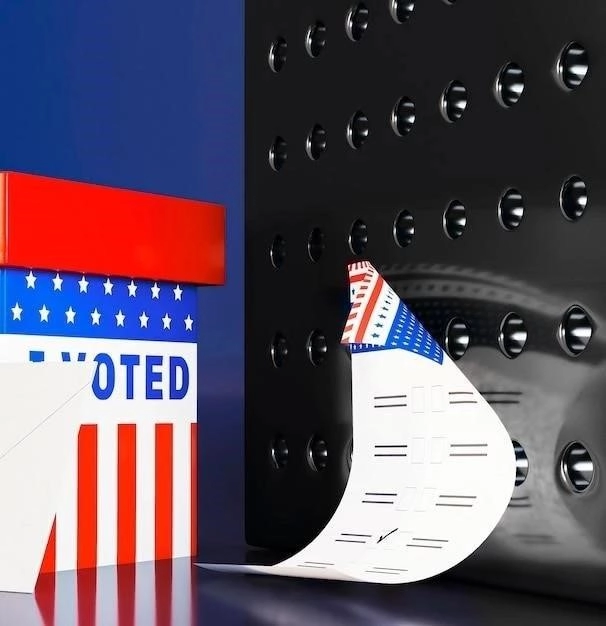Electoral Integrity
At the heart of a functioning democracy lies the assurance of fair and impartial elections. The integrity of the electoral process, from voter registration to the certification of results, is paramount. When public faith in this system erodes, so too does the legitimacy of the government it empowers.
The Threat of Election Theft
Perhaps the most alarming challenge facing American democracy is the potential for election theft—the deliberate and illegitimate overturning of legitimate election results. This threat, while not unprecedented in American history, has gained heightened urgency in recent years. The January 6th insurrection, fueled by unsubstantiated claims of widespread voter fraud, served as a stark illustration of the potential for violence and chaos when faith in the electoral process is deeply undermined.
Worries about election theft center on two primary scenarios. First is the fear of blatant manipulation of election machinery, such as tampering with voting machines or ballot boxes. While existing safeguards make such actions difficult to execute on a large scale, the mere perception of vulnerability can be corrosive to public trust. The second, and arguably more insidious, threat lies in the potential for elected officials to subvert election results through legalistic means. This could include purging voter rolls under dubious pretenses, enacting overly restrictive voter ID laws, or refusing to certify legitimate election outcomes—actions that exploit the technicalities of election administration for partisan gain.
Addressing the threat of election theft necessitates a multi-pronged approach. Strengthening election security measures, such as implementing paper ballot backups and conducting rigorous audits, can help inspire confidence in the accuracy of vote tallies. More critically, safeguarding the independence and impartiality of those tasked with administering elections—from local election boards to state-level officials—is essential. This includes robust legal protections for these individuals, ensuring they are shielded from undue political pressure and empowered to uphold the integrity of the electoral process above partisan interests. Furthermore, vigorous public education campaigns aimed at debunking misinformation about elections and emphasizing the importance of civic participation can play a crucial role in inoculating the electorate against attempts to delegitimize democratic processes.

Vulnerabilities in the Electoral System
Beyond the immediate threat of outright election theft, there are a number of vulnerabilities inherent in the American electoral system that, while not necessarily fatal to democracy in and of themselves, can nonetheless erode public trust and create opportunities for unfair manipulation. These weaknesses are often deeply rooted in the country’s history and institutional design, making them all the more challenging to address.
One prominent vulnerability stems from the decentralized nature of American elections. With administration largely left to individual states and counties, there is significant variation in voting procedures, registration requirements, and ballot access. This patchwork system, while reflecting the country’s federalist structure, can lead to inconsistencies that disproportionately disenfranchise certain groups of voters, particularly those in marginalized communities. Moreover, the lack of uniform standards can make it difficult to safeguard against malicious actors seeking to exploit loopholes or inconsistencies for partisan advantage.
Additionally, the United States’ reliance on outdated technology in some jurisdictions raises concerns about the security and integrity of election infrastructure. Aging voting machines, often lacking robust security features or verifiable paper trails, can be susceptible to hacking or malfunction, potentially casting doubt on the accuracy of results. While efforts to modernize election systems are underway, securing adequate funding and overcoming logistical hurdles remain ongoing challenges. Addressing these vulnerabilities requires a sustained commitment to investing in secure and accessible election infrastructure across all levels of government, ensuring that every citizen can exercise their right to vote with confidence in a fair and accurate process.

Minority Rule
A core tenet of democratic governance is the principle of majority rule – that the will of the majority should prevail in shaping policy and choosing representatives. However, certain features of the American political system, some by design and others arising from evolving demographics and political strategies, have raised concerns about the potential for minority rule, where a numerical minority can exert disproportionate influence over the political process.
This phenomenon stems from a confluence of factors. The Electoral College, designed to balance the interests of less populous states against those with larger populations, has in recent elections resulted in the presidency being won by a candidate who did not win the popular vote. Similarly, the equal representation of states in the Senate, regardless of population size, gives outsized power to voters in less densely populated, often more rural, states. This can result in a legislative chamber reflecting the preferences of a minority of Americans, potentially stymying the will of the majority.
The debate over minority rule goes beyond these institutional structures. Gerrymandering, the manipulation of electoral district boundaries for partisan advantage, further exacerbates this challenge. By strategically drawing district lines, political parties can concentrate opposition voters in a smaller number of districts, effectively diluting their overall voting power. This practice, while subject to legal challenges, remains a persistent feature of American politics, contributing to the potential for minority rule, particularly at the state and local levels.

The Senate and Electoral College Advantage
Central to the debate about minority rule in America is the structure of the Senate and the Electoral College, two institutions conceived by the Founding Fathers to balance the influence of large and small states. However, in the context of contemporary demographics and political polarization, these mechanisms have raised concerns about fairness and representation.
The Senate, with its equal representation for each state regardless of population, grants disproportionate power to voters in less populous states, often characterized by more rural demographics and a conservative political lean. This structure can result in a legislative body that does not accurately reflect the national popular will, potentially hindering the passage of legislation supported by a majority of Americans. Similarly, the Electoral College, designed to prevent candidates from focusing solely on populous states, allows for the possibility of a president being elected without winning the popular vote, as has occurred in two of the last six presidential elections.
Critics argue that these imbalances undermine the principle of one person, one vote, eroding public trust and fueling perceptions of unfairness. Proponents, however, contend that the Senate and Electoral College protect the interests of smaller states, fostering compromise and preventing a tyranny of the majority. The debate over these institutions remains contentious, reflecting fundamental disagreements about the nature of representation and the balance of power in a democracy.
Gerrymandering and Its Impact
A significant threat to fair representation in the United States stems from gerrymandering—the manipulation of electoral district boundaries for partisan gain. This practice, named after Massachusetts Governor Elbridge Gerry’s salamander-shaped district in 1812, allows political parties to influence election outcomes by concentrating opposition voters in a few districts while spreading their own supporters across multiple districts to secure more seats.
The consequences of gerrymandering are far-reaching. It can lead to non-competitive elections, where incumbents face little to no challenge, reducing accountability to voters. Additionally, it can contribute to political polarization by creating districts that are ideologically homogenous, minimizing incentives for moderation and compromise. This, in turn, can lead to legislative gridlock and an inability to address pressing national issues.
Addressing gerrymandering requires promoting fair districting practices, such as independent redistricting commissions composed of non-partisan experts tasked with drawing competitive districts that reflect communities of interest. Increased transparency in the redistricting process, along with robust legal challenges to egregious examples of partisan gerrymandering, are also essential for ensuring fair representation and restoring public trust in the electoral process.

Voter Suppression
A truly democratic society hinges on the unhindered participation of its citizenry in the electoral process. Voter suppression, the act of creating obstacles to prevent eligible citizens from exercising their right to vote, stands in direct opposition to this ideal. It undermines the very foundation of a representative government, where the legitimacy of elected officials derives from the consent of the governed.
Voter suppression manifests in various forms, often targeting communities that have historically faced disenfranchisement, such as racial and ethnic minorities, low-income individuals, and students. These tactics include restrictive voter ID laws that disproportionately burden certain groups, limited access to polling places and early voting opportunities, purging voter rolls based on unreliable criteria, and enacting complex registration procedures that can deter participation, especially among first-time voters.
Combating voter suppression necessitates a multi-faceted approach. Legal challenges to discriminatory voting laws, coupled with proactive measures to expand access to the ballot box, are crucial. This includes implementing automatic voter registration, promoting early voting and same-day registration, and ensuring that polling places are accessible and adequately staffed. Additionally, robust voter education campaigns can empower citizens with the knowledge and resources to overcome obstacles and exercise their fundamental right to participate in the democratic process.
Barriers to Voting
The promise of a truly representative democracy rests upon the ability of all eligible citizens to cast their ballots freely and without undue burden. However, a myriad of barriers, some systemic and others more insidious, can impede access to the ballot box, disproportionately impacting historically marginalized communities and undermining the principle of equal representation.
Logistical hurdles, often amplified by socioeconomic disparities, pose significant challenges for many Americans. Limited access to transportation, inflexible work schedules, and inadequate childcare options can make it difficult, if not impossible, for some individuals to reach polling places during often restricted voting hours. These obstacles are further compounded by the geographic distribution of polling locations, which can create undue burdens on voters residing in remote areas or communities lacking reliable public transportation.
Beyond these practical barriers, more deliberate efforts to suppress voter turnout, often targeting minority communities and those with lower incomes, pose a serious threat to democratic participation. These can manifest as strict voter ID requirements, limited early voting periods, and the purging of voter rolls based on questionable criteria, all of which disproportionately disenfranchise certain groups and cast a shadow over the integrity of the electoral process.

The Impact on Democratic Participation
The erosion of trust in democratic institutions, fueled by concerns about electoral integrity, fair representation, and access to the ballot box, poses a significant threat to the very fabric of American democracy. When citizens perceive the system as rigged or unresponsive to their needs, their faith in the democratic process wanes, leading to apathy, cynicism, and disengagement from civic life.
Declining voter turnout, particularly among younger generations and historically marginalized communities, stands as a stark indicator of this trend. The perception that their voices do not matter, coupled with frustration over the perceived unresponsiveness of elected officials to their concerns, can lead individuals to disengage from the political process altogether. This creates a vicious cycle where lower turnout further empowers special interests and entrenched political elites, exacerbating the sense of alienation and disillusionment among the electorate.
Revitalizing democratic participation requires a concerted effort to restore faith in the system’s fairness and responsiveness. This entails enacting reforms to ensure equitable access to the ballot box, addressing gerrymandering and other forms of electoral manipulation, and fostering greater transparency and accountability in government. Equally important is the need to rebuild trust in democratic institutions, which requires not only structural changes but also a renewed commitment to civic education, civil discourse, and a shared sense of purpose in addressing the challenges facing the nation.
The Irresponsible Party Threat
A functioning democracy relies not only on the structural integrity of its institutions but also on the responsible exercise of power by those entrusted to govern. The concept of an “irresponsible party,” one that prioritizes partisan advantage or ideological purity over the well-being of the nation and the preservation of democratic norms, presents a profound challenge to democratic stability and governance.
This threat manifests in various ways, from engaging in inflammatory rhetoric that undermines public trust in democratic institutions to actively obstructing legislative processes and refusing to compromise on critical issues. It can also involve efforts to suppress voter turnout, manipulate electoral boundaries, or delegitimize election results, all in pursuit of partisan gain, even at the expense of democratic principles.
Addressing the challenge posed by an irresponsible party requires a multifaceted approach. Holding elected officials accountable for their actions through robust media scrutiny, active civic engagement, and, when necessary, legal recourse is crucial. Additionally, fostering a political culture that values compromise, moderation, and respect for democratic norms, even in the face of partisan disagreement, is essential for mitigating the risks posed by irresponsible actors. This requires a collective commitment from both the public and elected officials to prioritize the common good over narrow partisan interests, recognizing that a healthy democracy depends on the responsible exercise of power by all.

Hyper-Partisanship and Its Consequences
The health and stability of a democratic system depend on the capacity for civil discourse, compromise, and a shared commitment to the common good. However, American democracy increasingly finds itself grappling with the corrosive effects of hyper-partisanship – a state of political polarization so extreme that it undermines the very functioning of government and erodes public trust in democratic institutions.
Hyper-partisanship manifests in a variety of ways, from the demonization of opposing viewpoints and the proliferation of misinformation to the prioritization of party loyalty over principled policymaking. This toxic political climate fosters gridlock, stifles meaningful debate, and creates an environment where compromise is perceived as weakness, impeding the ability of elected officials to address critical national challenges effectively.
Addressing the challenge of hyper-partisanship requires a multi-pronged approach. Promoting media literacy and critical thinking skills is crucial for empowering citizens to discern fact from fiction and resist the allure of partisan echo chambers. Fostering a culture of civil discourse and respectful dialogue, both within government and among the electorate, is essential for bridging divides and finding common ground. Additionally, electoral reforms aimed at promoting greater competition and reducing the influence of extreme partisan voices can contribute to a more balanced and functional political system.

Erosion of Democratic Norms
Democracies, unlike other systems of government, are not solely sustained by laws and institutions. They rely heavily on unwritten norms, shared values, and a collective commitment to fair play and the peaceful transfer of power. These unwritten rules of the game, often taken for granted, are essential for ensuring that political competition remains bounded and does not devolve into a zero-sum struggle for dominance.
Recent years have witnessed a troubling erosion of these democratic norms in the United States. The increasing tolerance for inflammatory rhetoric, the normalization of misinformation and disinformation, and the willingness to prioritize partisan advantage over the preservation of democratic institutions all point to a weakening of the shared values that underpin a healthy democracy.
Addressing this erosion requires a multi-faceted approach. Civic education plays a crucial role in instilling an understanding of democratic principles and the importance of upholding norms of civility and respect. Political leaders, regardless of party affiliation, bear a responsibility to condemn unambiguously actions that undermine democratic norms, even when such actions benefit their side. Additionally, holding individuals and institutions accountable for spreading misinformation and disinformation, while safeguarding freedom of speech, is paramount for fostering a public discourse grounded in facts and reason.










